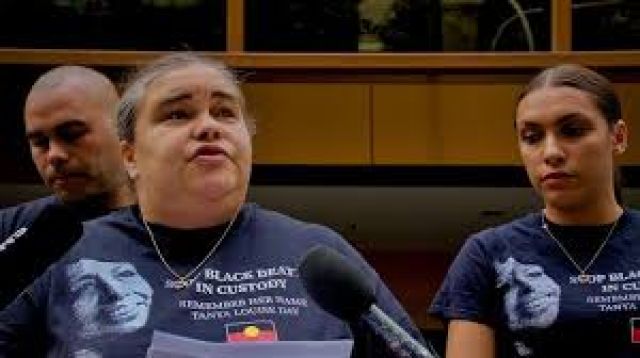
“This is an historic day for Aboriginal people in this country, and a bittersweet day for our family,” said Belinda Day on April 9 referring to the coroner’s decision to refer her mother Tanya Day, who died in custody, to the public prosecutions department.
“Hundreds of Aboriginal people have died in police custody, yet no police officer has yet been held criminally responsible,” Belinda Day said. The coroner made this referral about her mother’s death in custody after finding that an “indictable offence may have been committed”.
The significant announcement is the latest step in a long journey for the Day family, who have been fighting for justice since the Yorta Yorta woman had fallen asleep on a V/Line train. She was found by a V/Line officer, who called the police, despite other passengers saying she was doing no harm.
She died in hospital in December 2017 of head injuries sustained 17 days earlier in that police cell: CCTV footage showed that she fell and hit her head — five times.
When police finally called an ambulance, after noticing Tanya Day unconscious in her cell, they failed to tell the paramedics about the falls or the bruising on her head. Paramedics saw her dilated pupils and had decided, wrongly, that Day had taken drugs.
The April 9 The Guardian Australia reported that coroner Caitlin English found “unconscious bias” on the part of the V/Line officer.
“I find the decision to consider her unruly and to call police in preference to other options was influenced by her Aboriginality”, she said. However, regarding the police actions, English said: “I am not of the view there is evidence to make a finding the differential treatment was due to Ms Day’s Aboriginality”.
Tanya Day’s family is concerned and disappointed at the finding.
“Overall we’re pretty happy with the recommendations, but a bit disappointed she didn’t call out the systemic racism of Victoria Police because it clearly contributed to Mum’s death”, Belinda Day said.
The family, who had to fight for a coronial inquest in the first place, asked the coroner to consider the conflict of interest implicit in the use of police investigators in the court. English has recommended an amendment to the Coroners Act, to give coroners more control over coronial investigations.
Tanya Day was a committed advocate for her people, and had campaigned against police brutality and Aboriginal deaths in custody.
Her family are now gearing up for the next chapter of that struggle for justice.
“We’re pleased they’re making a referral for a criminal investigation, but that means there’s still a fight to be had and we’re up for a fight,” Belinda Day told the Riverine Herald on April 14.
“We will continue to fight it all the way. We haven’t got justice, so the fight continues. I think Mum would have been proud that we continued the fight for her.
“She was always strong in her advocacy and her passion and strength has passed onto us and we will continue to have her in our heart.”